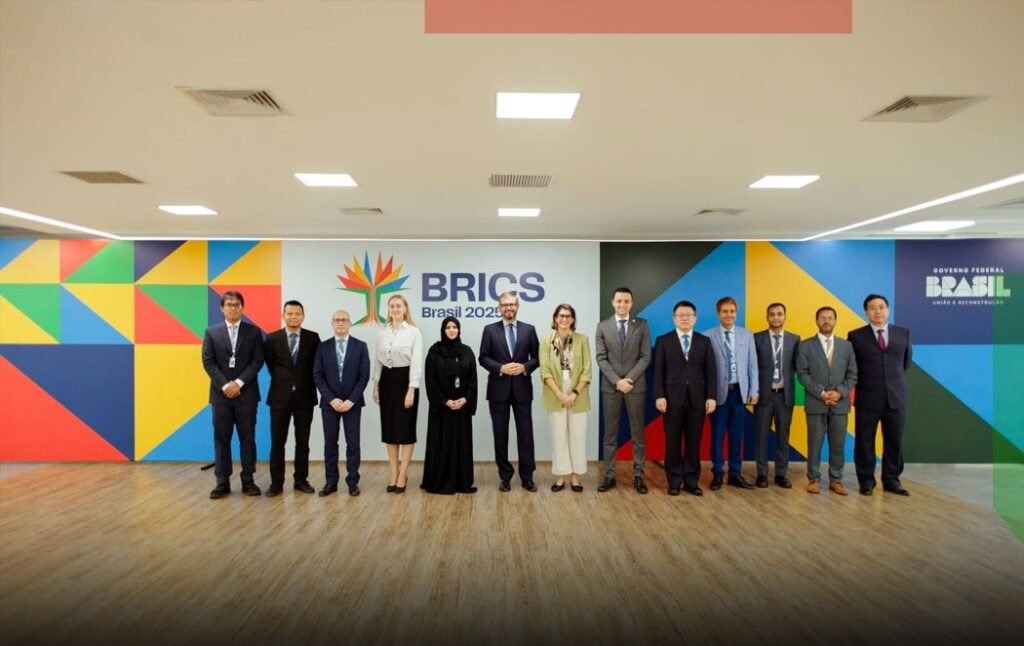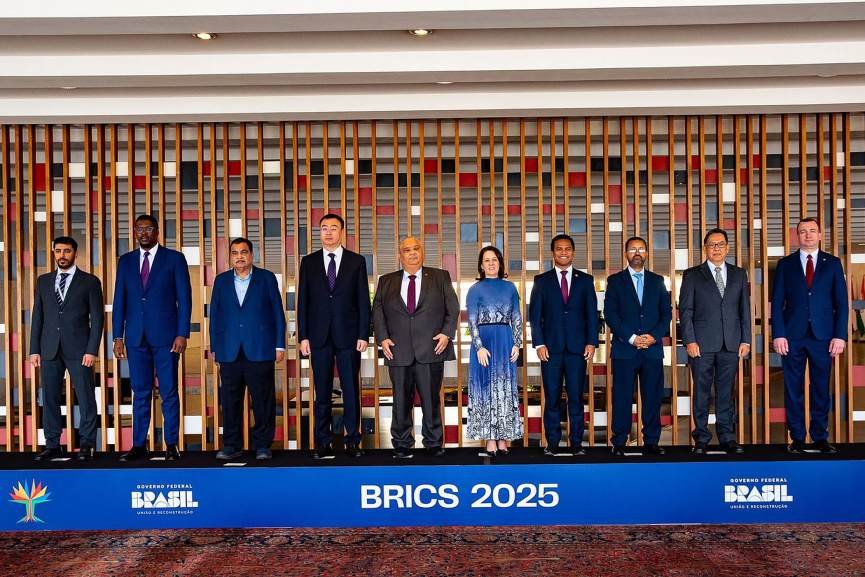The United Arab Emirates (UAE) took center stage at the recent BRICS Energy Ministerial Meeting, reaffirming its dedication to global energy security. As the world grapples with energy challenges, the UAE showcased its leadership in fostering sustainable and reliable energy solutions. The meeting, attended by energy ministers from Brazil, Russia, India, China, and South Africa, along with other key stakeholders, provided a platform for the UAE to outline its vision for a stable and sustainable energy future.
The UAE’s participation highlighted its strategic role in global energy markets, emphasizing collaboration, innovation, and sustainability. With its forward-thinking policies and investments in clean energy, the UAE is positioning itself as a pivotal player in ensuring global energy security for decades to come.
Why Global Energy Security Matters
Energy security is the backbone of modern economies. It ensures that countries have access to reliable, affordable, and sustainable energy to power homes, industries, and transportation. In today’s world, energy security is more critical than ever due to:

- Rising Demand: Growing populations and industrialization increase energy needs.
- Geopolitical Tensions: Conflicts can disrupt energy supply chains.
- Climate Change: The shift to renewables is essential but requires careful planning.
- Economic Stability: Energy price volatility impacts global markets.
The UAE understands these challenges and is committed to addressing them through international cooperation and innovative strategies. At the BRICS meeting, the UAE emphasized that global energy security is not just about oil and gas but also about diversifying energy sources and embracing cutting-edge technologies.
UAE’s Leadership in Energy Innovation
The UAE has long been a leader in the energy sector, balancing its role as a major oil producer with ambitious investments in renewable energy. At the BRICS Energy Ministerial Meeting, UAE representatives highlighted several initiatives that underscore their commitment to global energy security:
- Renewable Energy Investments: The UAE is home to some of the world’s largest solar projects, such as the Noor Abu Dhabi and Al Dhafra Solar Projects. These initiatives reduce reliance on fossil fuels and provide clean energy to millions.
- Nuclear Energy: The Barakah Nuclear Power Plant, the first of its kind in the Arab world, is a testament to the UAE’s commitment to diversifying its energy mix.
- Green Hydrogen: The UAE is investing heavily in green hydrogen, a clean fuel that could revolutionize energy markets.
- Carbon Capture Technologies: By adopting advanced technologies, the UAE is reducing emissions while maintaining its role as a key energy supplier.
These efforts demonstrate the UAE’s holistic approach to energy security, blending traditional resources with innovative solutions to meet global demands.
Strengthening Ties with BRICS Nations
The BRICS Energy Ministerial Meeting provided a unique opportunity for the UAE to strengthen ties with some of the world’s fastest-growing economies. By collaborating with Brazil, Russia, India, China, and South Africa, the UAE aims to:
- Share Expertise: The UAE’s experience in energy diversification can benefit BRICS nations transitioning to cleaner energy.
- Enhance Trade: Stronger partnerships can lead to more stable energy trade routes, ensuring supply chain resilience.
- Promote Innovation: Joint research and development in energy technologies can accelerate global progress toward sustainability.
During the meeting, UAE officials emphasized the importance of collective action in addressing energy challenges. By working together, BRICS nations and the UAE can create a more resilient and sustainable energy ecosystem.
The Role of Sustainability in UAE’s Vision

Sustainability is at the heart of the UAE’s energy strategy. The country has set ambitious goals to reduce carbon emissions and increase the share of renewables in its energy mix. Key initiatives include:
- UAE Energy Strategy 2050: Aims to increase the contribution of clean energy to 50% by 2050, reducing the carbon footprint of power generation.
- Net Zero by 2050: The UAE is one of the first Gulf nations to commit to net-zero carbon emissions, aligning with global climate goals.
- Masdar’s Global Reach: Masdar, the UAE’s renewable energy company, is driving clean energy projects worldwide, from solar farms in Africa to wind projects in Europe.
At the BRICS meeting, the UAE highlighted how these initiatives contribute to global energy security by ensuring a stable supply of clean energy while mitigating environmental impacts.
Addressing Global Energy Challenges
The BRICS Energy Ministerial Meeting also focused on pressing global energy challenges, such as supply chain disruptions and price volatility. The UAE proposed several solutions to tackle these issues:
- Diversifying Supply Chains: By investing in multiple energy sources, the UAE reduces dependence on any single resource, enhancing global stability.
- Investing in Infrastructure: The UAE is upgrading its energy infrastructure to ensure efficient delivery of oil, gas, and renewables.
- Promoting Energy Efficiency: Programs to reduce energy waste are helping the UAE and its partners optimize resource use.
These strategies not only benefit the UAE but also set a model for other nations striving to achieve energy security.
UAE’s Role in Energy Diplomacy
The UAE’s participation in the BRICS meeting is part of its broader energy diplomacy efforts. By engaging with global powers, the UAE is fostering dialogue and collaboration on energy issues. This approach has several benefits:
- Building Trust: Open discussions at forums like BRICS strengthen international relationships.
- Influencing Policy: The UAE’s expertise allows it to shape global energy policies in favor of sustainability and security.
- Attracting Investment: By showcasing its commitment to energy innovation, the UAE attracts partnerships and funding for its projects.
The UAE’s proactive stance at the BRICS meeting underscores its role as a trusted partner in the global energy landscape.
Looking Ahead: UAE’s Vision for the Future

The UAE’s participation in the BRICS Energy Ministerial Meeting is a clear signal of its long-term vision for global energy security. By investing in renewable energy, fostering international partnerships, and promoting sustainability, the UAE is paving the way for a more secure and sustainable energy future. Key priorities for the future include:
- Expanding Renewable Energy: Scaling up solar, wind, and hydrogen projects to meet global demand.
- Strengthening Global Cooperation: Deepening ties with BRICS and other nations to address energy challenges collectively.
- Driving Innovation: Investing in research and development to stay at the forefront of energy technologies.
As the world moves toward a cleaner, more resilient energy landscape, the UAE’s leadership will continue to play a pivotal role.
Conclusion
The UAE’s commitment to global energy security was on full display at the BRICS Energy Ministerial Meeting. Through its innovative policies, strategic partnerships, and focus on sustainability, the UAE is shaping the future of energy on a global scale. By balancing its role as a leading oil producer with investments in renewables and energy efficiency, the UAE is setting an example for other nations to follow. As the country continues to drive progress in the energy sector, its influence will only grow, ensuring a more secure and sustainable world for generations to come.
Read More: IndiGo Soars: Direct Flights from Madurai to Abu Dhabi Boost Global Connectivity













